MPs, peers, religious and civic leaders are urging Hindus and Muslims to stand together after disturbances and protests in Leicester and the West Midlands.
They are also calling on the police to communicate and better engage with south Asian communities to stop religious tensions from rising.
Last week [20], hundreds of, what appeared to be, Muslim men protested outside a Hindu temple in Smethwick near Birmingham.
They had heard rumours that the mandir had invited a right-wing Hindu activist to speak to worshippers.
“I was really very, very concerned, because we haven't seen these kinds of communal tensions here on the streets of the United Kingdom,” said the Labour MP for Birmingham Edgbaston, Preet Kaur Gill.
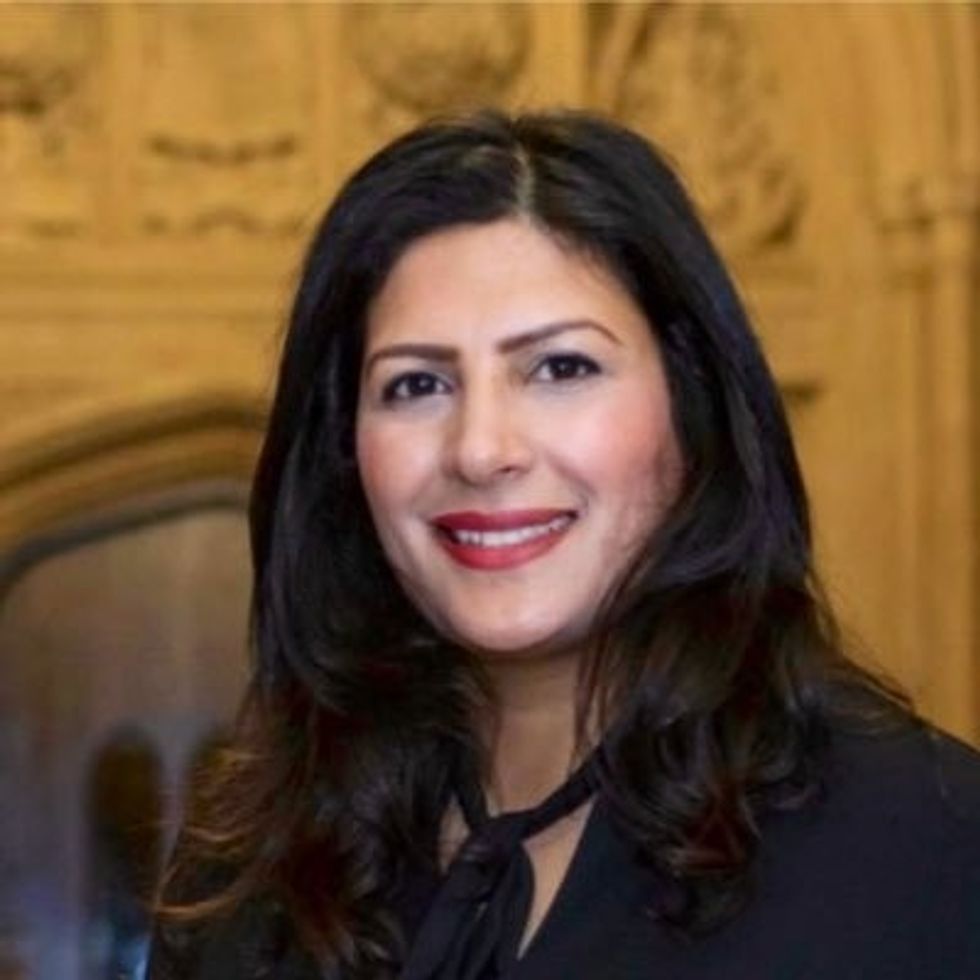
“The Smethwick protest could have been handled a little bit differently, in the sense that when people were already raising this issue about the visitor that was due to come, if the police had spoken to the mandir, and they had confirmed that they had cancelled the event, then the police should have shared that information beforehand.
“That way none of those crowds would’ve turned up protesting in the way that we saw that they did.
“I feel just getting a grip in terms of bringing the community together, making sure we have the correct information and it's being dispersed just means that we're not leaving communities to rely on social media.”
Fake news
Parliamentarians are concerned that fake news on social media, including Twitter and WhatsApp, is inciting religious and racial hatred to spill into potential violence elsewhere in the UK.
Over the weekend, rumours spread that Muslims were targeting Hindu temples in London for protest demonstrations on Sunday [25 September].
That is because of speculation that right-wing Hindutva and Rashtriya Swayamsevak Sangh (RSS) members, which have their bases in India, were responsible for attacks on Muslims in Britain.
Taking to Twitter, the Labour MP for Brent North in London, Barry Gardiner wrote, “I’ve contacted the police about the incitement to demonstrate at a Hindu temple in my constituency tomorrow.
“Anyone thinking of demonstrating should stay away and recognise that hate crimes carry jail sentences.
“Hindus should not go to “defend” the mandir. That is the police job.”
Communal violence
Over the past three weeks, Leicester witnessed episodes of communal violence rarely seen outside the south Asian subcontinent.
They pitted Hindus against Muslims and vice-versa, and it remains unclear why the clashes happened.
The disturbances fuelled claims on social media that right-wing Hindu extremists and Islamist groups were responsible for inciting violence by spreading fake news.
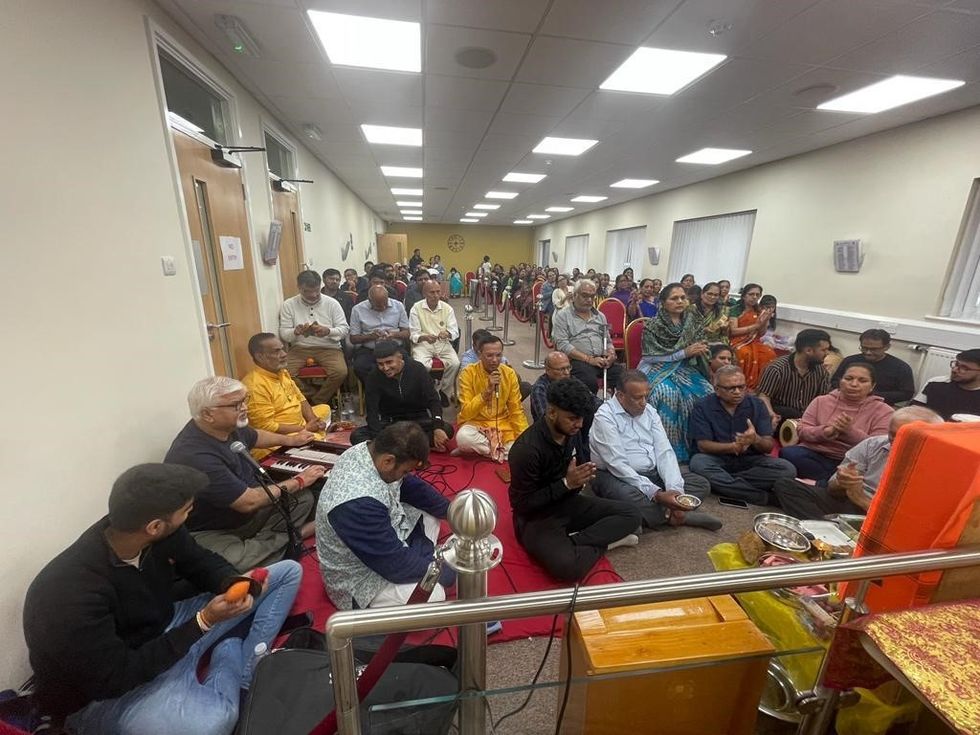
But local councillor and community activist, Ruma Ali, told Eastern Eye that she had witnessed first-hand what she described as Hindutva groups in Leicester since April.
“I don't know where they came from, I think they came from Birmingham, places like that,” said Ali.
“They said, we are the RSS we are the Hindutva. They didn't say we're local Hindus.

“They've come outside the mosque, and they've blasted music during prayer time, which is disrespectful.
“So, when they were told to go away by the Muslim community, they came back the next day, drinking alcohol outside the mosque, throwing those cans in front of the mosque, that provoked the community.
“What they did during the evening times, again, people were praying in the mosque, they were urinating outside the mosques.
“It was the same people, and it was deliberate.”
She said this has been happening for several months.
“We've tried to ask these people not to come near the mosque and not to do this.
“We've tried to do it without being violent and without being aggressive.
“We've tried to get the police involved, and then they came with the orange RSS flags outside the mosque.
“We've got video footage, we've got witnesses, we've got CCTV, and it’s [incidents] never happened before.”
Arrests
Leicestershire Police have so far arrested almost 50 people.
They have charged eight men, all from Leicester, with a variety of offences including on suspicion of making threats to kill and on suspicion of possession of an offensive weapon.
Parliamentarians and civic leaders have condemned the violence and spreading of false information.
“There is absolutely zero evidence of any right-wing Hindu groups being here, and I haven't even seen any evidence of extreme Muslims here either,” said Baroness Sandy Verma from Leicester.
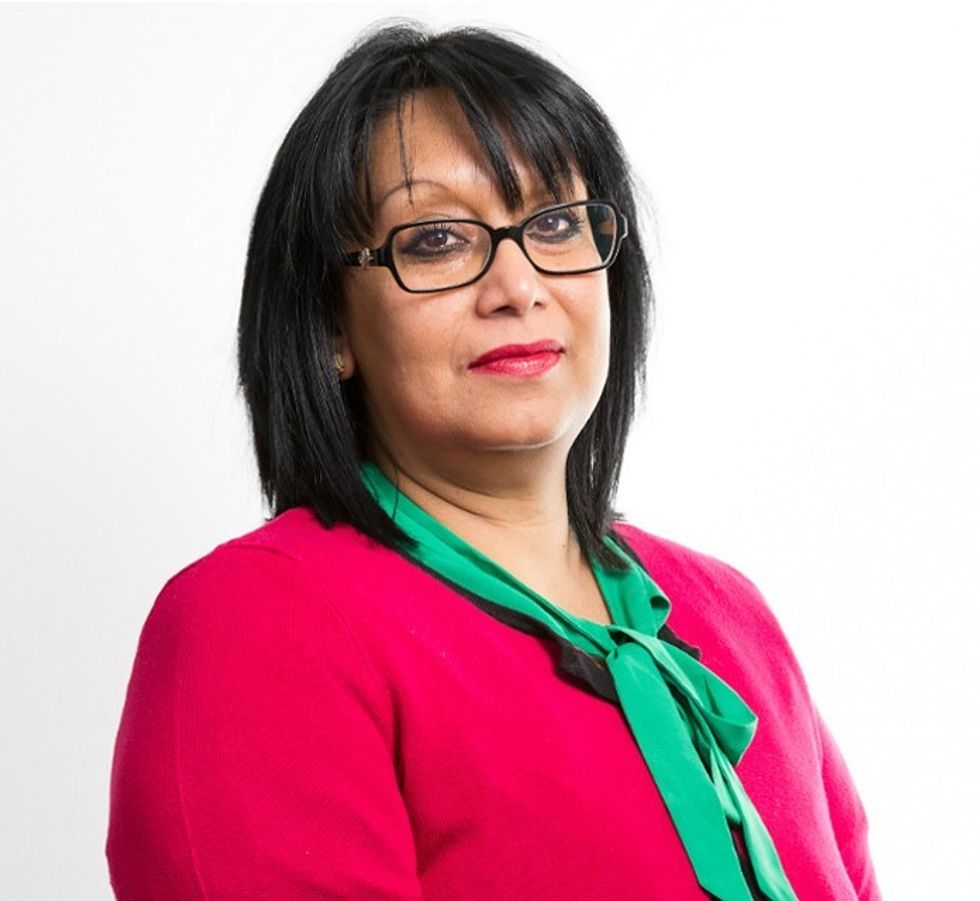
“But what I have seen are people that don't belong to the city, using social media to ignite tensions, and that's wrong.
“I totally condemn any form of extremism, and we don’t want any extremists in this country.
“We’re living in a country that’s tolerant of everyone, why should we support any form of extremism?”
Monday [26 September] saw the first day of Navratri or Durga Puja, one of the most important religious festivals in the Hindu calendar.
Sources have told this newspaper about fears that events would be targeted by Muslim groups.
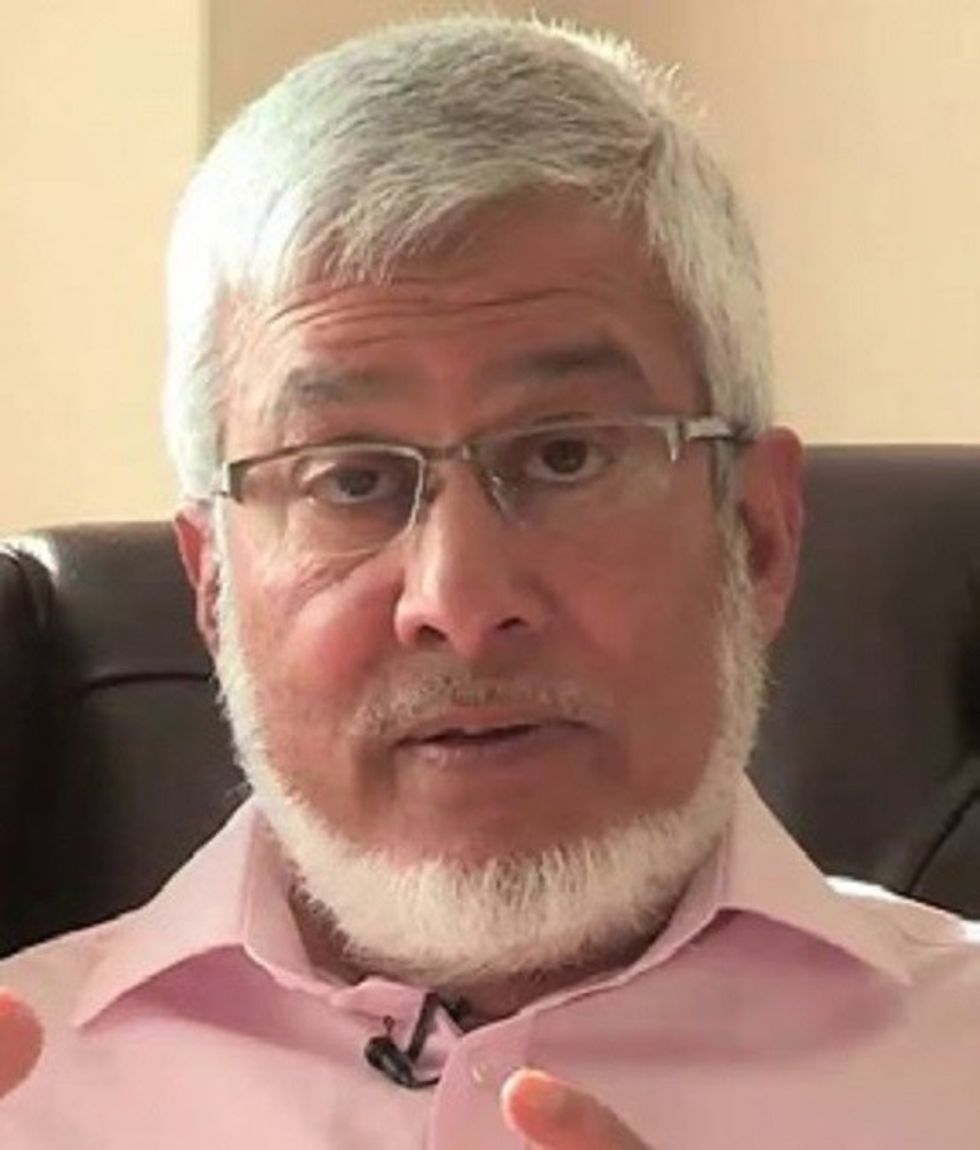
But the former president of the Leicestershire Asian Business Association, Jaffer Kapasi, a Muslim, said bigotry had no place in his city.
“Citizens of Leicester live in continuous harmony, and we maintain this multicultural, multifaith city,” he said.
“This is for the benefit of our children, grandchildren who are going to live and they're going to progress here.
“My appeal again, is to make sure that there's peace and harmony as there has always been in Leicester.”
Khan’s plea
In London, civic leaders are concerned about the growth of communal tensions and subsequent violence.
“Any attempts to drive a wedge between our communities by a small minority should be called out and resisted by all,” tweeted London mayor, Sadiq Khan.
“Now is the time for us to rekindle and strengthen our bonds of solidarity.
“My grandparents were from India. My parents from Pakistan.
“I was born and raised in London and am proud to call Britain my home.
“But like many Londoners who can trace their family history to different parts of the world, I feel a strong connection with my heritage.”
Concerns
Former chair of the London Assembly, Navin Shah, has written to the home secretary, Suella Braverman, urging her “to do everything in her power to immediately restore order and peace in the areas affected”.
He also asked her to “provide adequate resources to stop such communal clashes and bring about community cohesion”.
Speaking to Eastern Eye, Shah said, “Individuals and organisations I know are talking about the troubles spreading.
“Feelings are raw, and with social media it heightens the symptoms and produces insecurity.
“You get conflicting reports that on the one hand there were external forces coming up from Birmingham and Smethwick or wherever.
“Then you’re told that these things have been brewing long before the India-Pakistan cricket match.
“So, you worry about these things spilling over in other areas, and that is dangerous.
“We do not want that in this country.
“I’m very proud of the UK being a beacon of unity.”
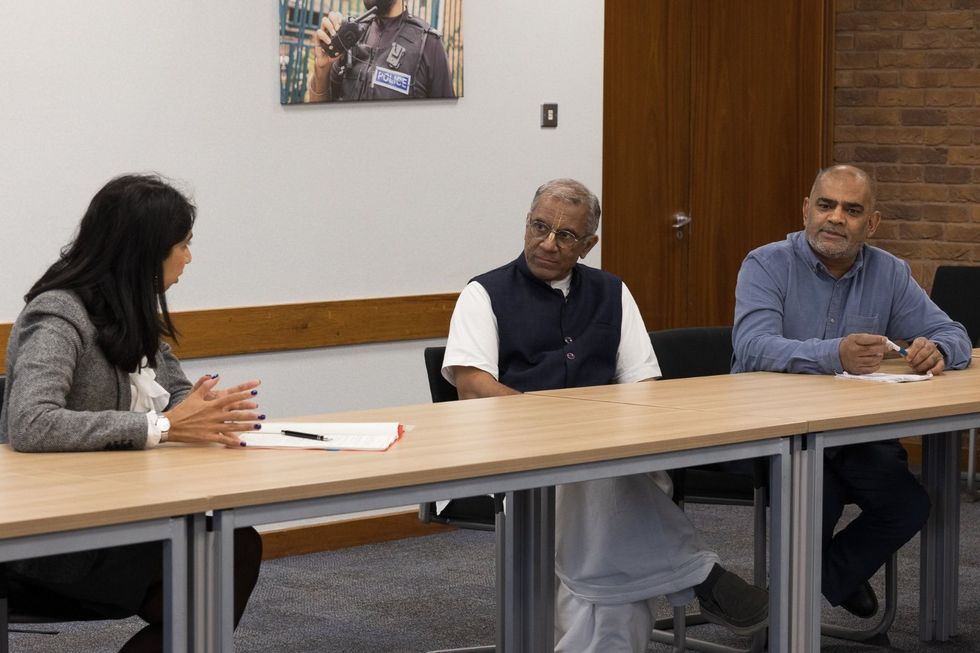
Spreading violence
West Midlands Police said on Friday [23] they had arrested a 37-year-old man from Birmingham on suspicion of publishing material with intent to incite religious hatred.
“We had been searching for him following the publication of a social media video earlier this week where threats were made and derogatory language used,” they wrote on their website.
“The man handed himself in to officers this morning and will be questioned in due course.”
The force also beefed-up police presence in temples in Coventry following protests outside a mandir in Smethwick last week [20].
“We always seek to facilitate peaceful protest, upholding the right to protest, while balancing it with the rights of others to keep the public safe, prevent crime and disorder,” the force wrote.
“However, we won't accept disorder and will seek to act against anyone who attends with the intention to cause trouble and put the safety of others at risk.
“We'd ask people to be mindful of misinformation and rumour on social media.
“This can have a serious impact on communities.”
In 2019, the then prime minister, Boris Johnson, authorised the recruitment of 20,000 new police officers.
But according to the Home Office figures, the service lost more than 21,700 staff during 2010 and 2018.
“We've seen neighbourhood policing decimated by this government,” said Birmingham Erdington MP, Preet Kaur Gill.
“The fact is we've lost 2200 officers in the West Midlands, we've only managed to recruit about 1000, so we're still 1200 short.
“Another point in this, we have seen hate crime based on a person's religion increase.
“The government just has not done enough and the police just don't have the resources to monitor and do much more.”
The MP said once solution would be to engage local religious and community groups.
“I want to see every place of worship become a third-party reporting centre.
“Communities are much more likely to report incidents of hate crime, in their language and to the places that they consider safe spaces for them and where they have trust.
“That just hasn't happened, and I think it is also important that we engage with the right people who really do have a say in the community, who are connected with the communities.
“So, who are those representatives? If we had neighbourhood policing functioning in the way that we did once upon a time, then you would already have those relationships.
“The police would know who to contact.”
Police response
In a statement to this newspaper, a spokesperson for West Midlands Police said, “We're proud to have such positive and productive relationships with all faith groups across our diverse communities.
“We have regular meetings with religious leaders and attend temples, mosques, churches and other religious establishments to discuss issues and look at partnership working to address these [issues].
“We've built up strong relationships which means we can quickly engage with all faith groups and the real benefits of this could be seen last week.
“We were able to promptly share information and help ensure there was no serious disorder, while also dispelling false information appearing on social media.”
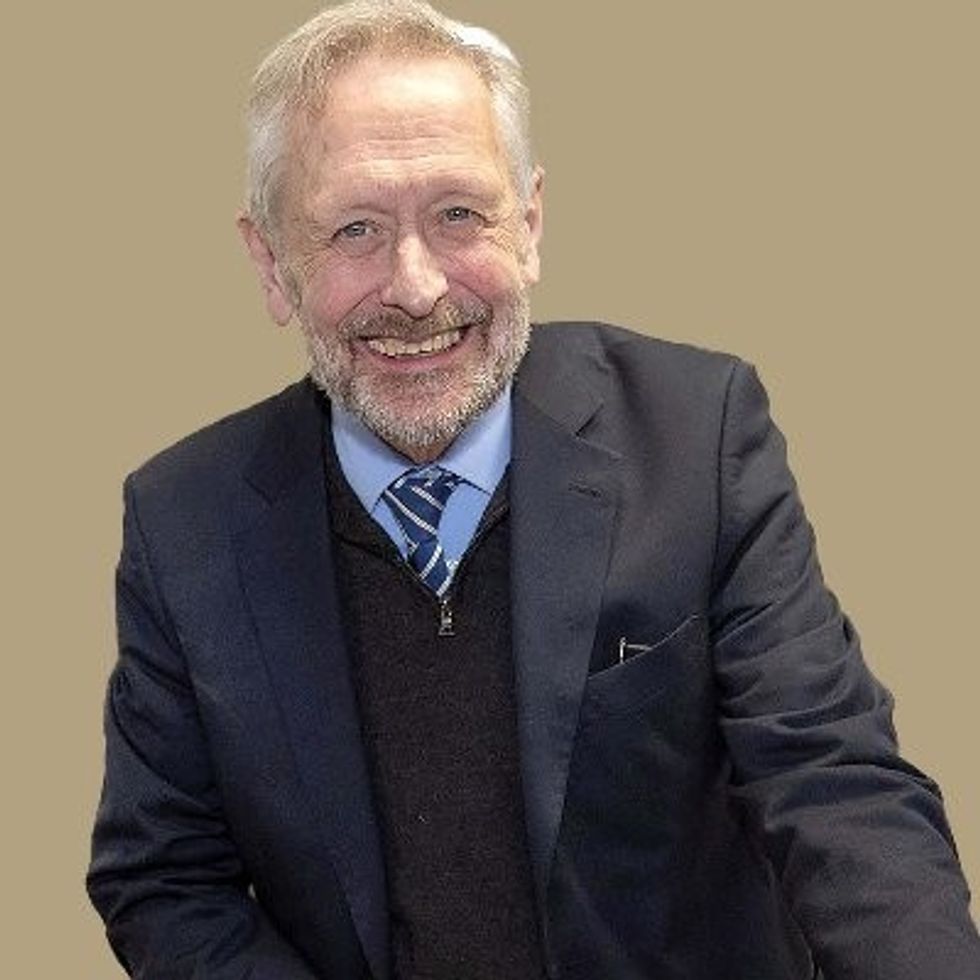
Leicester’s mayor, Sir Peter Soulsby, told Eastern Eye that outsiders were fuelling the disturbances.
“My message is to focus on the incredibly good relations that we have in the city and not allow people to bring in issues from elsewhere, particularly from the Indian subcontinent, in ways that seek to divide us,” he said.
“It’s clear people from a wide range of places, were being organised to use Leicester as an opportunity to raise conflicts that belong elsewhere and don't belong in our city.”
Last week, the home secretary visited Leicester to meet civic leaders and Leicestershire police chiefs.
It was during this meeting that they agreed to hold a review into what caused the tensions and subsequent disorder.
“The response to this disorder is a multi-agency one,” said temporary chief constable, Rob Nixon.
“While it’s my officers on the front line, dealing with the violence first hand, the wider response, with the community leaders, faith leaders, local authority and the force [is] to work together to address what is at the root of this unrest.
“We want to make sure this doesn’t happen again and addressing the root cause of these issues within our community will be key to this.”
That will mean looking at the evidence his officers have collected.
The police said a team of 50 was “working round the clock” collecting and investigating the information.
Nixon said, “This will take some time.
“At this point we have 158 crimes and over 6000 hours of body worn video, CCTV and social media videos to review.
“This will all take time as it’s imperative it is done thoroughly to ensure those responsible are brought to justice for their crimes.”
“Don’t look for blame, look for solutions”
The man who led the independent inquiry into the northern riots more than 20 year ago has urged the Leicester review to look for solutions rather than blame, writes Barnie Choudhury.
Professor Ted Cantle, chair of the new charity The Cohesion and Integration Network, delivered a report for the Tony Blair government which investigated the causes behind the summer of disturbances in Oldham, Burnley and Bradford in 2001.
He told Eastern Eye that the outcome of the Leicester review will depend on what those commissioning it are trying to find out.
“The idea of my inquiry really was to focus on what do we do next,” he said.
“It was to try to have an analysis of the whole policy framework and try to come up with new approaches.
“I was chosen because, essentially, I'd worked in local government, and I was independent of any political party and so were my team.
“We did have two politicians, one Labour, one Conservative, and trade unionists, and we had lots of people representing different community organisations and communities.
“Trying to understand some of the forces involved, or some of the things that happened, rather than, did the police do this at the right time, or what was said on social media, is a pretty fruitless task.
“It’s helpful in terms of the context, but it's not really helpful in deciding what to do next, and how to respond to it.”
Cantle suggested that those on the review panel must be independent and independently minded.
“We were not a government inquiry, we were an independent inquiry, and everybody on it was fully independent, independently minded.
“At no point did anybody from the civil service or any politician ever say, could you say this? Could you not say that?
“At no point, were we pressurised to come up with a particular point of view, or not to come up with a particular point of view.
“So, I think we felt that we could base our opinions and proposals entirely on what we saw.”
The Cantle team followed the evidence, he said, and it looked at other towns and cities, not just those where there had been riots.
“We went to umpteen towns and cities around the country and said, what's gone right? What's the difference?
“So, in this case, what are the particular factors that might have influenced Leicester compared with those elsewhere? Why didn't it happen elsewhere?
“A lot of the same things did happen, but it just happened that Bradford, Burnley and Oldham were the three areas that had that particular spark which exploded into action.
“In many other cases, they had sparks, they had embers burning, but they never reached the same proportion, just because of luck and circumstance.
“This meant those other towns and cities where they actually had small disturbances or riots were actually put down very quickly.
“So, I think the point is, really to look at Leicester, but look more generally at some of the pressures which triggers to violence.”
Another important piece of advice to the Leicester review team is to demonstrate that they were not judging communities.
“We tried to emphasise when we went round to towns and cities that we weren't there to judge them.
“Lots of the teams were from similar communities.
“We were trying to do it with them rather than to them.
“There is a real danger that the communities feel that they have to respond in a particular way, so they might be positive, or they might be negative over a particular point.
“I think we could genuinely say, we're from similar backgrounds and understanding as you, and we can talk on the same terms.
“In that context, it’s having people who were empathetic, they were trying to understand, and they were not trying to score points, was really quite important to the process.”
Cantle believed it was acceptable to have ideas and hypotheses, but he warned that they had to be tested.
He also confirmed that his inquiry could concentrate and test the causes of tensions which were truly local.
Now, 21 years after those summer riots, things have changed, he said.
“That's very different from Leicester where social media is playing a huge part.
“It’s playing a huge part in many, many other communities.
“If you're a member of x or y community, you're getting information that you're not necessarily getting from your neighbour, certainly not from the local press of media, but through social media.
“I think you've got to look at the whole context of social media now because social media is acting like an echo chamber, in which extremist views become more extreme.
“They can come from other parts of the world, the influence of Indian sub-continent for example, whether it's extremist Hindus or Muslim extremists.
“I would start with the assumption that social media has played a part, and obviously try to put that to the test.
“Because it plays a part in every local circumstance now far more than it ever did before.
“Communities, I think, are particularly vulnerable to that sort of heightened activity.”




